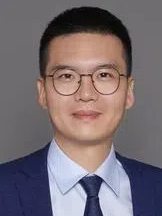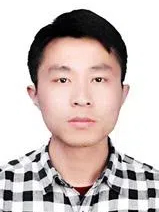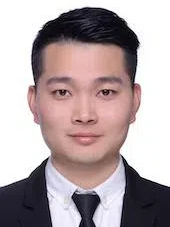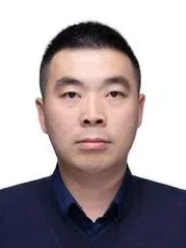Special Session 6
Special Session 6: Multimodal Large Language Models: Architectures, Applications and Trustworthiness
Description:
The rapid advancement of artificial intelligence has brought
about a revolutionary breakthrough in the field of
multimodal large language models (MLLMs). These models,
integrating various modalities such as text, images, audio,
and video, have demonstrated unprecedented capabilities in
understanding and generating content across diverse domains.
They hold great promise for transforming industries and
enabling groundbreaking applications. However, as their
influence grows, concerns regarding their trustworthiness,
reliability, and ethical implications have also come to the
forefront. To this end, the special session highlights the
crucial role of Multimodal Large Language Models in the
field of digital image processing. In addition, the special session also includes the application of artificial intelligence technologies such as intelligent computing in industries, healthcare, education, and other fields.
Session organizers
Assoc. Prof. Tong Qiao, Hangzhou Dianzi University, China
Assoc. Prof. Xiaofei Zhou, Hangzhou Dianzi University, China
Assoc. Prof. Guodao Zhang, Hangzhou Dianzi University, China
Assoc. Prof. Bolun Zheng, Hangzhou Dianzi University, China
The topics of interest include, but are not limited
to:
• Multimodal Hallucination Detection
• Backdoor Attacks in Vision-Language Models
• Differential Privacy for Multimodal Data
• Explainable MLLMs
• Cross-Modal Educational Content Generation
• Accessibility Tools for Special Education
• Multimodal Teaching Assistants
• Multimodal Object Detection and Segmentation
• Low-quality Image Enhancement & Restoration
Submission method
Submit your Full Paper (no less than 8 pages) or your paper
abstract-without publication (200-400 words) via
Online Submission System, then choose Special Session 6
(Multimodal Large Language Models: Architectures, Applications and Trustworthiness)
Template Download
Introduction of session organizers

Assoc. Prof. Tong Qiao
Hangzhou Dianzi University, China
Tong Qiao received the B.S. degree in Electronic and Information Engineering in 2009 from Information Engineering University, Zhengzhou, China, and the M.S. degree in Communication and Information System in 2012 from Shanghai University, Shanghai, China, and the Ph.D. degree in University of Technology of Troyes, Laboratory of Systems Modelling and Dependability, Troyes, France, in 2016. He currently works as an Associate Professor in School of Cyberspace from Hangzhou Dianzi University. His current research interests focus on media forensics, AI security and data hiding. He has published over 70 peer-reviewed papers on journals and conferences, including IEEE TPAMI, IEEE TIFS, IEEE TDSC, IEEE TMM, IEEE TCDS. He is currently the head of Sino-France Joint Laboratory for Digital Media Forensics of Zhejiang Province, the member of the Technical Committee on Digital Media Forensics and Security of CSIG, the member of the Technical Committee on Big Data and Privacy Computing of CIPS, and an associate editor of IET Image Processing.

Assoc. Prof. Xiaofei Zhou
Hangzhou Dianzi University, China
Xiaofei Zhou received his Ph.D. in Signal and Information Processing from Shanghai University in 2018. He is currently an associate professor at the School of Automation, Hangzhou Dianzi University. His research focuses on object detection and segmentation in images and videos, low-quality image enhancement, and anomaly detection. He has published more than 70 high-level papers, including journals and conferences such as IEEE TIP, IEEE TMM, IEEE TCSVT, IEEE TITS, IEEE TII, IEEE TCYB, IEEE TGRS, IEEE TCI, and ACM MM. He has presided over 2 national scientific research projects and participated in 4 national, provincial and ministerial scientific research projects. He is currently a member of the Machine Vision Committee of the Chinese Society of Image and Graphics. In addition, he has long served as a reviewer for important journals in the field of image processing.

Assoc. Prof. Guodao Zhang
Hangzhou Dianzi University, China
Guodao Zhang works as an Associate Professor and Master's Supervisor at Hangzhou Dianzi University. He is also the Assistant Dean of the School of Humanities and Digital Arts, and the Deputy Director of the Intelligent Media Computing Research Institute. His current research interests focus on artificial intelligence, smart education, and the intersection of arts and engineering. He has published over 30 peer-reviewed papers in SCI journals, including ACM Computing Survey, IEEE TITS, IEEE TBCS, and IEEE TCS, with one highly cited paper. He holds over 20 authorized invention patents. He is also involved in the construction of the Zhejiang Provincial Radio and Television Bureau Laboratory for Intelligent Interaction and Immersive Presentation Technology Innovation. He has hosted and participated in several national and municipal research projects, including one national key research and development project and two National Natural Science Foundation projects. He is a member of the Smart Healthcare Committee and the Medical Image Computing Youth Seminar Committee.

Assoc. Prof. Bolun Zheng
Hangzhou Dianzi University, China
Bolun Zheng is an Associate Professor at Hangzhou Dianzi University, specializing in image and video processing, multimedia content understanding, and computer vision. He obtained his Ph.D. from Zhejiang University in 2019 and has published over 50 papers in top-tier journals and conferences such as IEEE TPAMI, TIP, CVPR, and AAAI. Dr. Zheng has also been granted more than 30 patents and has led or participated in numerous national and provincial research projects, including the National Key R&D Program of China and the Zhejiang Provincial Key R&D Program. His research focuses on intelligent information processing based on visual modality analysis, with applications in image enhancement, video quality evaluation, and multimodal information processing.
